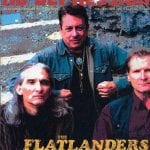Louisiana Music
Louisiana bills itself as a “Sportsman’s Paradise” on its license plates for its hunting and fishing opportunities. “Music Paradise” would be an equally appropriate slogan for a state that has produced top-flight musicians in a vast range of genres, including Louis Armstrong, Clifton Chenier, Webb Pierce, Allen Touissant, Beausoleil and Lucinda Williams.
From the Louisiana Hayride in Shreveport to the Jazz & Heritage Festival in New Orleans, the state’s music and musical institutions had an extensive influence on the development of American culture in the 20th century. Rick Koster provides an educational and fast-paced overview of the state in Louisiana Music. The author of Texas Music moves one state to the east in his latest book, which serves as a reference work and, to a lesser extent, as a listener’s guide to the sounds of Louisiana.
Koster spent a year traveling around the state, interviewing musicians and attending music festivals. He chronicles individual genres (jazz, blues, country, R&B) and devotes about 20 percent of the book to two styles of music created in Louisiana (Cajun and zydeco). He provides shorter accounts for such categories as gospel, Louisiana pop and voodoo. Major artists are covered in a couple of pages, while others get a few paragraphs or a couple of sentences. An extended bibliography is included for those seeking more information.
Koster points out that history and geography played a key role in the state’s musical development. Louisiana’s legacy as a slave state led to New Orleans’ role in the development of jazz. The migration of French-Canadians to Southwest Louisiana in the 18th century set in motion the events that created Cajun culture and music. New Orleans’ location on the Mississippi River, with easy access to the Gulf of Mexico, made it open to a variety of musical influences from around the world.
Koster is an engaging writer and a knowledgeable observer of the music scene. Some errors slipped into the book; the names of record producer Joel Dorn and comedian Redd Foxx are misspelled. Record producer Malcolm Burn is misidentified in one instance. Guitar Slim’s signature song is incorrectly listed once as “The Things You Used To Do”. These are minor annoyances in a book that is a worthwhile guide to one of America’s most musical states.




